Inmarsat is working on a UK Space Agency-funded test project with the European Space Agency, alongside British partners Goonhilly Earth Station Limited and GMVNSL Limited, to deliver the first UK-generated satellite navigation signal.
The project provides a potential platform for the UK to enhance its capabilities in the Positioning, Navigation and Timing (PNT) domain post-Brexit, say the Government.
According to a release from UKSpace.org:
“Repurposing a transponder from the Inmarsat-3 F5 (I-3 F5) satellite, the test project – UK Space Based Augmentation System or UKSBAS – will provide an overlay signal to augment the United States Global Positioning System (US GPS) satellite navigation system. This can refine the precision of the signal from a few metres to a few centimetres in accuracy.
UKSBAS will provide a basis to assess its future development into an operational capability to support safety-critical applications such as aircraft approaching and landing at airports or navigating ships through narrow channels, especially at night and in poor weather conditions. Goonhilly will provide the uplink for the system from Cornwall and software from GMVNSL, based in Nottingham, will generate the ground-based navigation signal. This is a similar system to that already in use in Australia and New Zealand, supported by Inmarsat. UKSBAS will be the first UK-generated national satnav signal.”
Transport Minister Trudy Harrison said:
“It is very welcome news to hear that UK-based companies have teamed up to deliver this ground-breaking project, with help from government funding. From flying planes to steering ships, reliable and precise navigation support is a crucial part of travel. This development is a significant step forward for our world-leading space sector, as we accelerate towards a net-zero transport future.”
This project could be crucial for UK users who need accurate, high-integrity navigation capabilities to enable their operations, initially covering aviation and maritime operations but with potential extension into rail and other land vehicle applications. For example, UKSBAS will be International Civil Aviation Organization (ICAO) standards-compliant.
The UK no longer has access to the European Geostationary Navigation Overlay Service (EGNOS) Safety of Life services since leaving the European Union and is not involved in the EU’s Galileo programme for similar reasons.
Therefore, this new national capability supported by current and future Inmarsat satellites could offer a new option for high-integrity, precision navigation across the country, in its airspace and within surrounding waters.



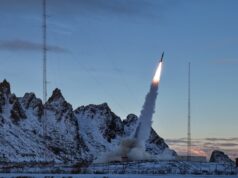


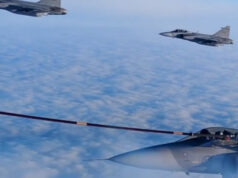


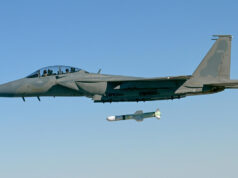
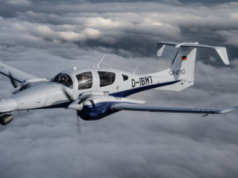
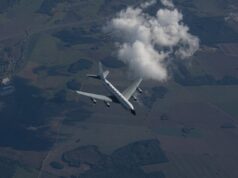

If this is such a vital industry to UKPLC – I believe it is, then why are we allowing foreign companies (US rival) to buy them!!!!!
“…since leaving the European Union and is not involved in the EU’s Galileo programme for similar reasons.”
I thought we were kicked out for ‘security reasons’ or some other sus excuse.
It’s an EU programme. The UK left the EU, so isn’t eligible to take part. Pretty simple really.
Farouk, the problem was that no exit rules were agreed before joining EEC/EU. How messy would it be if someone wanted to leave NATO?
Leave NATO,sign defence treaty with Russia,the USA looks after its self 1st,they are willing to fight to the last Brit😡
It’s an EU program done through the ESA, which the UK remains a member of.
There is also the issue that Norway is allowed to take part despite not being in the EU. So not so simple really.
We choose to leave a lot of EU based agencies that we didn’t need to. For better or worse this government wanted a clean break from the EU and remove any ties.
There were a lot of stories that we could have also stayed in Galileo if we had wanted, but we decided against it. As with everything the original position of the EU allowing only EU members was open to negotiation as part of the divorce negotiations.
I thought that the line was that only EU members could take advantage of the full range of capabilities it offered (ie the more capable and technologically sensitive elements) but for a fee non members could still use the standard services it provided.
We will never know the full story but allegedly the EU offered us to remain in with full access because they wanted our investment/money, but we declined.
It seems likely as other EU agencies were publically on the table.
Only it isn’t that simple.
Well, it is quite simple: you’re just wrong.
It’s an ESA programme, which has links with the EU, but is not part of the EU structure.
In fact, you’re just wrong.
It’s an EU program with a partnership with ESA.
The EU is fully responsible of Galileo while the ESA is responsible of the space part of the program.
This partnership take place in the ESNIS enterprise.(European Satellite Navigation Industries).
As for the money…
Its not limited to ESA/EU, the USA, China or India take part in the invest…
Whilst I sympathise with the sentiment, as a long term reader of UKDJ, I deeply regret your use of a homophobic slur
Think we were. Ironic as much of the sensitive stuff was provided by us before the Evil Union kicked us out. I hope my ex colleagues are not continuing to help them.
Yes and apparently, or at least as reported (so believe the source or not), we were to not be allowed to take advantage of those more capable elements despite having contributed to them.
I don’t expect it to make headlines but this seemingly small achievement is a huge step for a country to take
How is it that Norway, Switzerland, and other non EU countries can still use EGNOS?
If this is successful they are supposedly looking at rolling it out to the Gen 1 Oneweb satellites using their communication signals to generate a positioning fix and developing a larger Gen 2 Oneweb satellite that will also generate a pure navigation signal as well, though due to its size it will rely on ground based systems to correct onboard clocks rather than putting atomic clocks in orbit.
I was going to ask when this article first appeared, if this was to become part of the plans for the Oneweb acquisition so thanks for the confirmation. A lot of cynical commentary in the likes of the Guardian a while back laughing at the proposal to use their satellites to add these sort of capabilities so I hope that this proves successful so to counteract the endless sniping at progress generally but engineering/technology developments/proposals in particular which we still excel at in media outlets be they from the left or right. Indeed we get enough of it on here deriding everything as a likely new Ajax calamity. In the end taken to extremis it starts to become self fulfilling in nature.
Let’s hope it will be WAAS compliant like EGNOS so that the multitude of current devices can benefit. International Civil Aviation Organization (ICAO) standards-compliance implies that only commercial aviation has a stake in position accuracy, which is absolutely not true…
Waas compatibility would be super!
Would like to use our expensive Garmin kit to it’s full potential